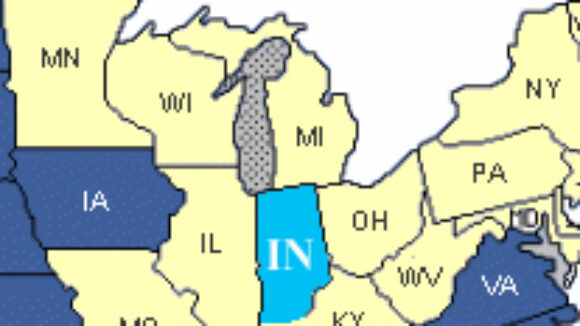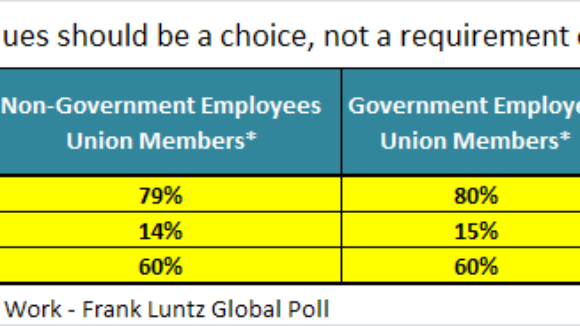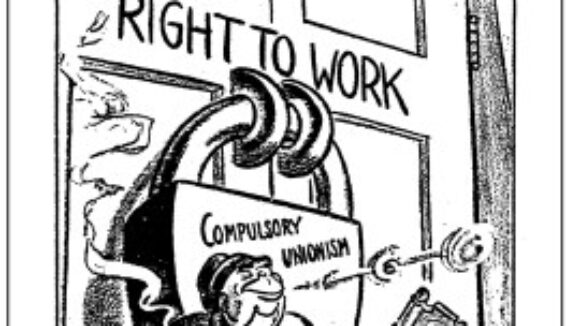Right to Work Debated in State Capitals
But National Forced-Dues Repeal Measure Still Being Held Back
(Source: September 2011 NRTWC Newsletter)
Not long ago, Big Labor was crowing about having thwarted citizen efforts to pass new Right to Work laws in Indiana and New Hampshire this year. But it's now clear that the boasts of the union bosses were premature.
Legislative support for abolishing compulsory union membership, dues and fees has been and remains strong in both the Hoosier and Granite States. Union lobbyists have therefore had to rely heavily on Gov. Mitch Daniels (R-Ind.) and union-label Gov. John Lynch (D-N.H.) to prevent enactment of America's 23rd and 24th state Right to Work laws.
But now Mr. Daniels, under increasing heat from thousands and thousands of freedom-loving Hoosiers, including many who have supported him in the past, is signaling that he may reconsider his opposition to legislative votes on Right to Work measures in Indianapolis next year.
Meanwhile, Mr. Lynch's late-spring veto of H.B.474, which would prohibit the firing of New Hampshire employees for refusal to pay dues or fees to an unwanted union, may now potentially be overridden because of a sustained Right to Work lobbying campaign.
States Can't Afford to Ignore Fact That Compulsory Unionism Hinders Economic Growth
"In the two years since the severe 2008-9 national recession officially ended, most state economies have recovered only feebly, if at all," commented National Right to Work Committee President Mark Mix.
"That's why many Indianans and New Hampshirites, along with the citizens of a number of other states that have yet to enact Right to Work laws, are now emphatically telling their elected officials that they can't afford to ignore the fact that compulsory unionism hinders economic growth.
"Trends in employee compensation, that is, wages, salaries, bonuses and benefits, illustrate well the Right to Work growth advantage.
"From 2000 to 2010, the inflation-adjusted outlays of private-sector businesses for employee compensation increased by an average of 11.8% in Right to Work states. That increase is nine times as great as forced-unionism states' combined 1.3% rise over the same period.
"Twenty of the 22 Right to Work states experienced a real compensation increase greater than the national average of 4.9%. And 14 of the 15 states with the lowest real compensation growth lack a Right to Work law."
Mr. Mix added that faster growth constitutes only a part of Right to Work states' edge.
Adjusting for regional differences in living costs with the help of indices created by the non-partisan Missouri Economic Research and Information Center (MERIC), in 2010 the average compensation per private-sector employee in Right to Work states was $56,830. That's roughly $1100 more than the average for forced-unionism states.
Cost of Living-Adjusted Compensation Higher In Right to Work States




